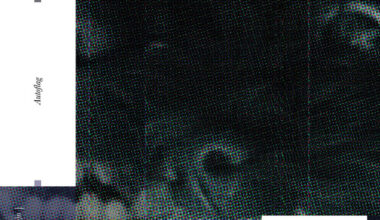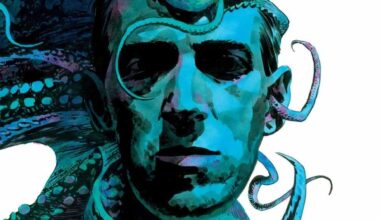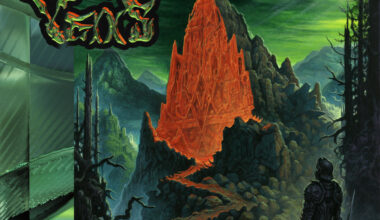Des Res

n Anna Diaz Ortuño’s film that accompanies Floating Points’ second album ‘Reflections – Mojave Desert’, the camera hones in on rocks, boulders and fragments that stretch as far as the eye can see. After lingering awhile, the shot switches to close-ups of dried husks of roots and twigs with a skeletal, brittle appearance, like trace echoes of life itself. With each new angle there is a sense of stillness, vastness, a contemplative landscape where near-silence vies with a teeming, hidden ongoing aliveness. Tentative clouds pass overhead, themselves as rudely interruptive as the sight of Sam Shepherd’s achingly cool Floating Points band jamming out their electronically-inflected prog-jazz here amid the barren moonscape of the Joshua Tree National Park.
The only thing more alien than the landscape, except for the music itself, is the looming, lanky form of guitarist Alex Reeve looking a little like Jeff Goldblum in ‘The Fly’ as he conjures shards of angular noise from his instrument. It’s all very serious stuff, even if the notion of pushing out music made with electricity in this most untrammelled, organic patch of America is faintly anachronistic.
London’s Sam Shepherd has taken Floating Points on a considerable journey since his 2015 debut ‘Elaenia’, which Electronic Sound justifiably ranked as one of the best albums of that year. That record bristled with knowing reference points, be they Warp-style electronica or the deepest corners of experimental jazz, swirled together in a melting pot by the restless, questing Shepherd, a scientist by trade, with a record collector and DJ’s sensibilities of knowing exactly what might fit together with what.
Since then, Floating Points have morphed into a full band comprising Shepherd on all manner of synths and vintage keyboards, Reeve on guitar, Matthew Kirkis on guitar and synth, Susumu Mukai on bass and Leo Taylor on drums. Despite ‘Elaenia’ seeming just about as perfectly executed as possible, the formation of a band around Shepherd has the effect of broadening his vision and, on the strength of this follow-up, has allowed Shepherd ample space to grow once again.
Conceived as the first of a series of recordings made in locations around the world, ‘Reflections – Mojave Desert’ blends tracks recorded as a band with location recordings made by Shepherd that sought to capture the quintessential atmosphere of the location itself. In Diaz Ortuño’s film we see the determined Shepherd loaded up with equipment and an industrial-looking directional microphone as he clambers over rocks while seeking the perfect aural vantage point from which to record the natural ambience events of the park. We also see him playing with the natural reverb that envelops a synth as he plays and records the same loop at varying distances on ‘Kites’.
This all adds up to an exacting, forensically detailed way of approaching sound, best exemplified by the opening track (‘Mojave Desert’). It’s a piece of pure unadulterated atmosphere, augmented by carefully-placed wobbly chords and tentative synth interjections, like Shepherd’s keyboards, are weaving themselves seamlessly and sensitively around and through the natural landscape. When the track nearly segues into the haunting, languid jazz rock of ‘Silurian Blue’ it feels like the gentlest of transitions, even as that natural ambience is supplanted by emotive astral reverb, aching guitar and synth countermelodies and Leo Taylor’s restless cyclical drumming.
In complete contrast, the full band track ‘Kelso Dunes’ comes with an abruptly motorik groove and all that form’s restlessness and urgency. The track acts as a perfect bridge between the impatient freneticism of Neu!, the glacial post-rock of early Tortoise and Miles Davis’s best electric period jams. ‘Kelso Dunes’ is the music of convergence; of genres (jazz, rock, electronica) and of the man-made with the natural landscape.
Somewhat deliberately, Diaz Ortuño shows the band performing this track at nightfall, when the landscape is transformed to little more than purest noir. The stars seem strangely close, as if the National Park is the bridge to another world and this track is its compelling soundtrack.
Earlier in the film we see a piece of silver foil wrapped around a piece of recording equipment, then flapping unanchored in the breeze. It’s like Sun Ra snagged his intergalatic costume as he was stepping onto his final flying saucer ride back to Saturn. With a backdrop so wonderfully odd, nothing would be a surprise. Unlike the music of the broad-minded Sam Shepherd, who is fast becoming one of his generation’s musicians to watch.





